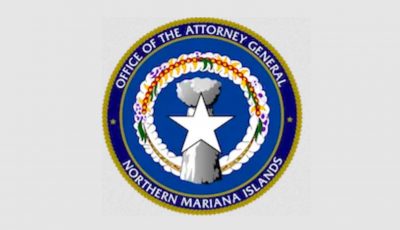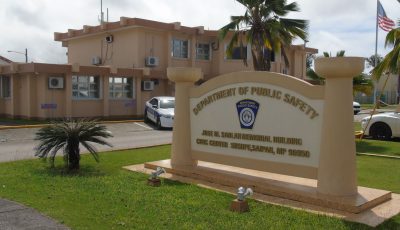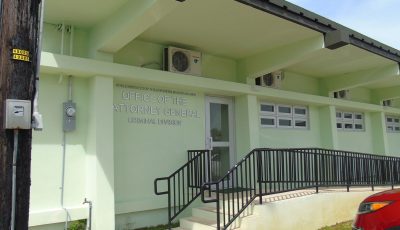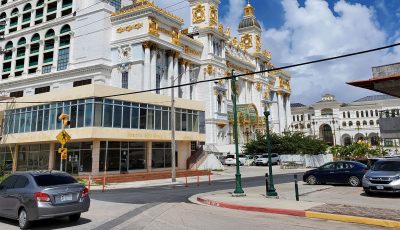OAG objects to subpoena of prosecutor
The Office of the Attorney General objects to a subpoena by a defendant in a sexual abuse case that requires a prosecutor to appear in court and produce documents during her meeting with the alleged victim.
In the government’s motion to quash, assistant attorney general Robert “Charlie” Lee said that Joseph Seman Epina’s subpoena exceeds the scope of discovery available to him under the NMI Rule of Criminal Procedure.
The documents and communications Epina seek are exempt from discovery and are expressly forbidden under the rule, said Lee in the government’s motion filed Monday before the Superior Court.
Epina, through the Office of the Public Defender, served the subpoena on assistant attorney general Teri Tenorio last Jan. 25.
The subpoena requires Tenorio’s appearance in court on Feb. 15, 2019. The subpoena also seeks privileged communications and the work product of the OAG.
Epina’s subpoena directs Tenorio to produce all documents indicating dates that she met with the victim, all communications between her and the victim, and all reports drafted, edited, reviewed, or received by Tenorio that refer to meetings with the victim.
Superior Court Associate Judge Joseph N. Camacho set the hearing on the government’s motion to quash for Feb. 15 at 9am.
The 44-year-old Epina is facing charges of raping a then-12-year-old girl on Saipan on March 12, 2016. The girl told police that it was not the first time that he had sexually assaulted her.
OAG charged Epina with sexual assault of a minor in the first degree, assault and battery, and disturbing the peace.
In the government’s objection, Lee said the subpoena broadly defines “documents” to include government memoranda, notes, emails, minute records, employment files, case files, correspondence, and various other articles.
Lee said the subpoena contains an even broader definition of “communications.”
Lee said the subpoena for Tenorio seeks such a “broad and ill-defined range of information that compliance with the subpoenas would be unreasonable and oppressive, especially in light of a prosecutor’s need to speak with a victim in preparation for a hearing or a trial.”
Lee said Epina has shown no compelling need for Tenorio’s testimony.
Lee said the subpoena is not a discovery tool, and that it must be targeted at a specific issue.
Lee said Epina has already received all recorded and written statements made by the victim, and has even cross-examined the girl at a hearing in July 2018 regarding the statements she made about the alleged offense.
He said the subpoena for Tenorio is directed at a government attorney, and the rule protects the work of government attorneys from disclosure—even if they pertain to communications with the victim.
Citing precedent, Lee said the court rejected a defendant’s claim that he was entitled to the notes of an AAG because they contained witness statements.
Lee said in that precedent, the court held that even if the notes contained witness statements, they were internal documents exempted from disclosure.



























